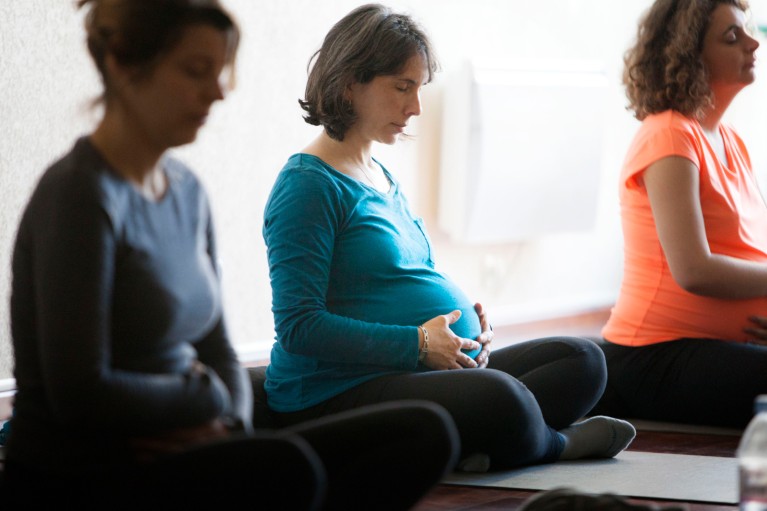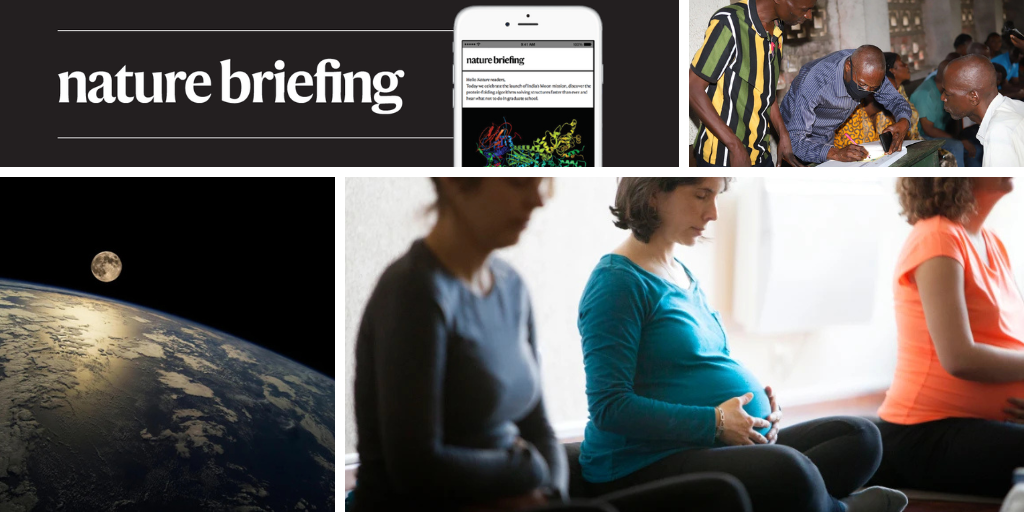You have full access to this article via your institution.
Hello Nature readers, would you like to get this Briefing in your inbox free every day? Sign up here.

Pregnant people have long relied on paracetamol for pain and fever. Credit: BSIP/Universal Images Group/Getty
“Don’t take Tylenol,” was the blunt advice of US President Donald Trump during an announcement that the US Food and Drug Administration will slap a new warning label on the painkiller (also known as acetaminophen and paracetamol) that flags a “possible association” with autism in children. But there is a lack of strong evidence to back up the claim. “The evidence does not support a causal link between acetaminophen or vaccines and autism,” says clinical teratologist Sura Alwan, the executive director of PEAR-Net Society, a nonprofit advocating for maternal fetal health and research. There are few safe alternatives to treat pain and fever during pregnancy, so advising against it is “bound to increase fear in pregnant women”, says Helen Tager-Flusberg, a psychologist who studies autism. “It is absolutely not grounded in the scientific findings.”
Oxygen particles blown from Earth to the Moon can turn lunar minerals into haematite — otherwise known as rust. The particles are carried in ‘Earth wind’ — a gust of ions of elements such as hydrogen, nitrogen and the offending oxygen — which hits the Moon for around five days each month. Researchers simulated the process by pelting single crystals of iron-rich minerals known to exist on the Moon with ions of oxygen, which caused the crystals to transform into haematite.
Reference: Geophysical Research Letters paper
An outbreak of Ebola in the Democratic Republic of the Congo (DRC) has caused 47 confirmed cases of the disease, including 25 deaths, since 4 September. The outbreak, which researchers say was probably caused by a spillover from an infected animal, is currently confined to four remote regions of the country. DRC’s ministry of health has confirmed that the outbreak was caused by Zaire ebolavirus. Z. ebolavirus is the most dangerous strain of the virus, but there are approved vaccines and drugs for it, which could stem the outbreak if rolled out quickly enough, say researchers.
Features & opinion
For the study of women’s reproductive health, neither animal models nor 2D cell cultures really cut the mustard. That, combined with the historical lack of funding for this research, has left even basic questions unanswered. To get a better understanding, researchers are turning to organoids — small 3D clusters of cells that can mimic features of the organ they’re grown to represent. These lab-made ‘mini-organs’ of the placenta, endometrium, ovary and vagina could help to reveal how the organs function, and what happens when things go awry.
Broccoli is packed with vitamins, minerals, folate and bioactive compounds that have significant health benefits. But not everyone gets to enjoy its nutritional bounty. Plant-breeding researchers Melanie Cabrera and Carlos Messina propose a broccoli breeding programme for heat-tolerant plants, bringing this “nutritional powerhouse” to where it’s needed most and reducing reliance on vulnerable, carbon-intensive supply chains.
npj Sustainable Agriculture | 26 min read
In her first book, Apocalypse, science journalist Lizzie Wade explores some of the cataclysmic events that humans have faced through history, and how these ‘apocalypses’ have shaped societies around the world. Writing in the midst of the COVID-19 pandemic, “I just wanted to know what other people in the past had done in these moments … what they had felt”, Wade tells the Nature Podcast. “Thinking about the future, seeing ourselves as one link in this chain of human creativity and survival and resilience, you know, made me feel a lot less alone.”
Today I’m welcoming a new satellite, Space Weather Follow-On L1 (SWFO-L1), that will warn us of potentially disruptive solar storms. The launch of SWFO-L1 comes just in time, says the US National Oceanic and Atmospheric Administration — the sun sentinels up there now are working beyond their design life. Big thanks to every scientist out there wielding this data to help keep us safe on Earth.
Thanks for reading,
Flora Graham, senior editor, Nature Briefing
With contributions by Jacob Smith
• Nature Briefing: Careers — insights, advice and award-winning journalism to help you optimize your working life
• Nature Briefing: Microbiology — the most abundant living entities on our planet — microorganisms — and the role they play in health, the environment and food systems
• Nature Briefing: Anthropocene — climate change, biodiversity, sustainability and geoengineering
• Nature Briefing: AI & Robotics — 100% written by humans, of course
• Nature Briefing: Cancer — a weekly newsletter written with cancer researchers in mind
• Nature Briefing: Translational Research — covers biotechnology, drug discovery and pharma


